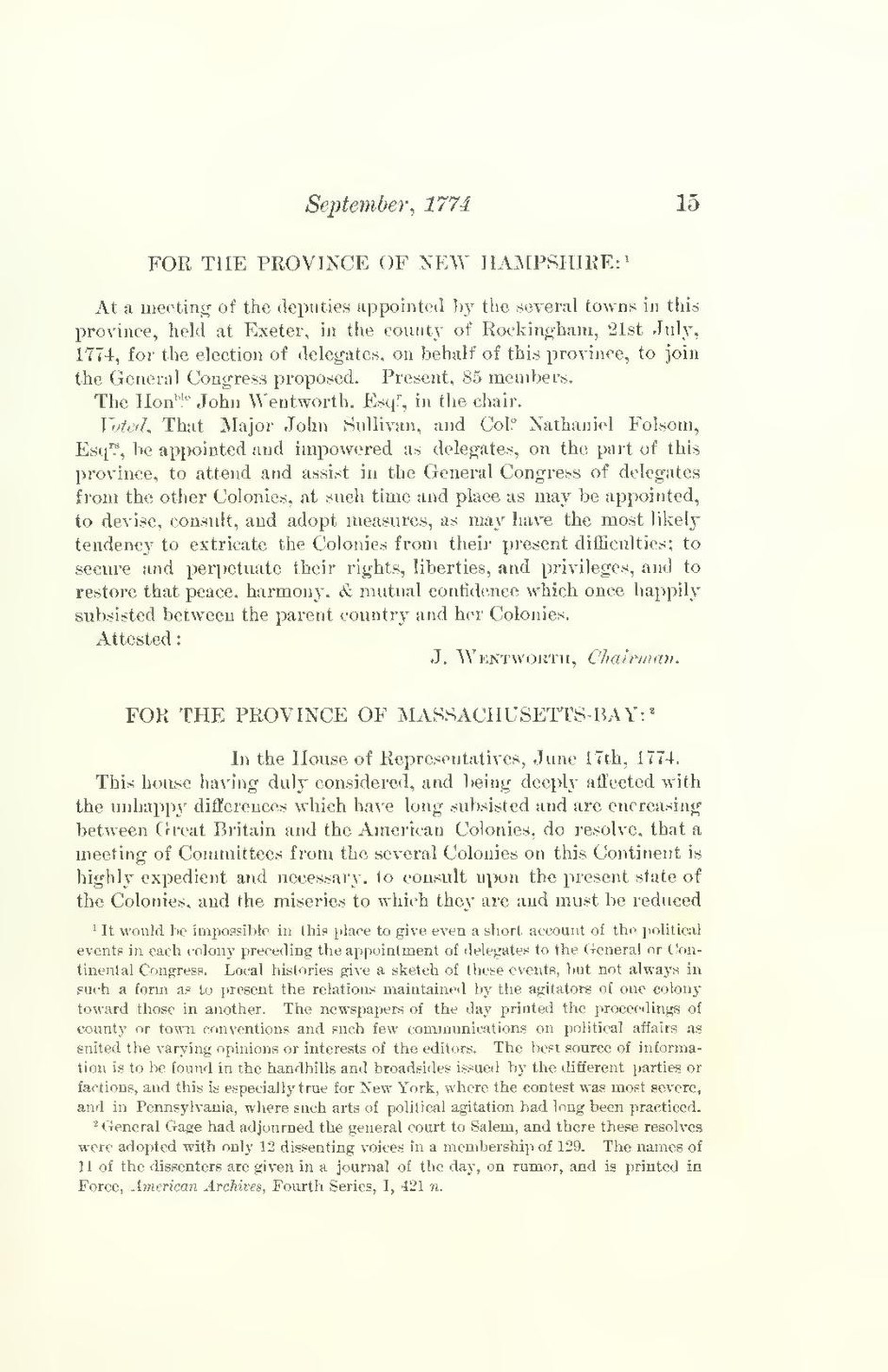FOR THE PROVINCE OF NEW HAMPSHIRE:[1]
At a meeting of the deputies appointed by the several towns in this province, held at Exeter, in the county of Rockingham, 21st July, 1774, for the election of delegates, on behalf of this province, to join the General Congress proposed. Present, 85 members.
The Honble. John Wentworth, Esqr., in the chair.
Voted, That Major John Sullivan, and Colo. Nathaniel Folsom, Esqrs., be appointed and impowered as delegates, on the part of this province, to attend and assist in the General Congress of delegates from the other Colonies, at such time and place as may be appointed, to devise, consult, and adopt measures, as may have the most likely tendency to extricate the Colonies from their present difficulties: to secure and perpetuate their rights, liberties, and privileges, and to restore that peace, harmony, & mutual confidence which once happily subsisted between the parent country and her Colonies.
Attested:
FOR THE PROVINCE OF MASSACHUSETTS-BAY:[2]
This house having duly considered, and being deeply affected with the unhappy differences which have long subsisted and are encreasing between Great Britain and the American Colonies, do resolve, that a meeting of Committees from the several Colonies on this Continent is highly expedient and necessary, to consult upon the present state of the Colonies, and the miseries to which they are and must be reduced
- ↑ It would be impossible in this place to give even a short account of the political events in each colony preceding the appointment of delegates to the General or Continental Congress. Local histories give a sketch of these events, but not always in such a form as to present the relations maintained by the agitators of one colony towards those in another. The newspapers of the day printed the proceedings of county or town conventions and such few communications on political affairs as suited to the varying opinions or interests of the editors. The best source of information is to be found in the handhills and broadsides issued by the different parties or factions, and this especially true for New York, where the contest was most severe, and in Pennsylvania, where such arts of political agitation had long been practiced.
- ↑ General Gage had adjourned the general court to Salem, and there these resolves were adopted with only 12 dissenting voices in a membership of 129. The names of 11 of the dissenters are given in a journal of the day, on rumor, and is printed in Force, American Archives, Fourth Series, I, 421 n.
